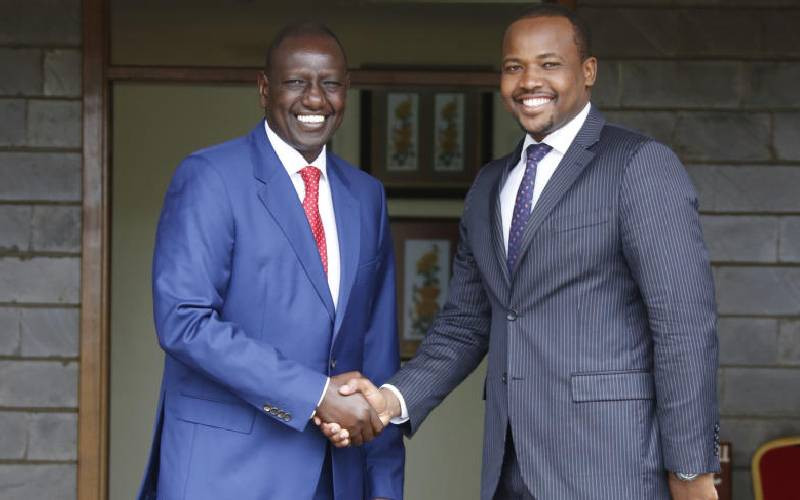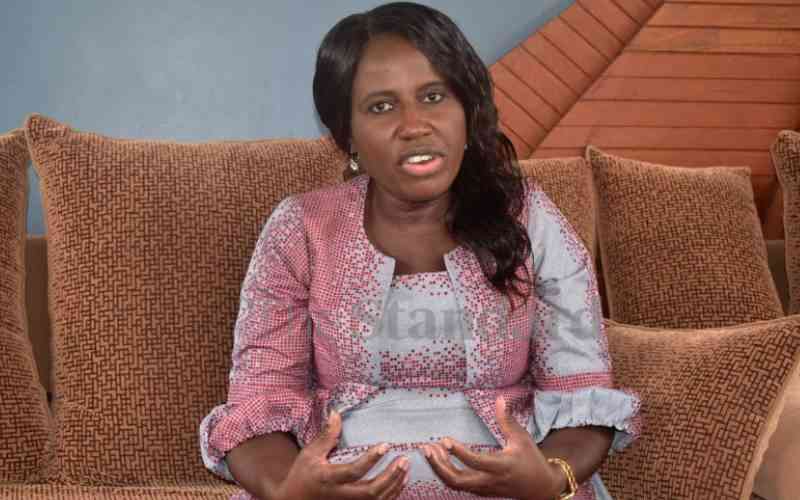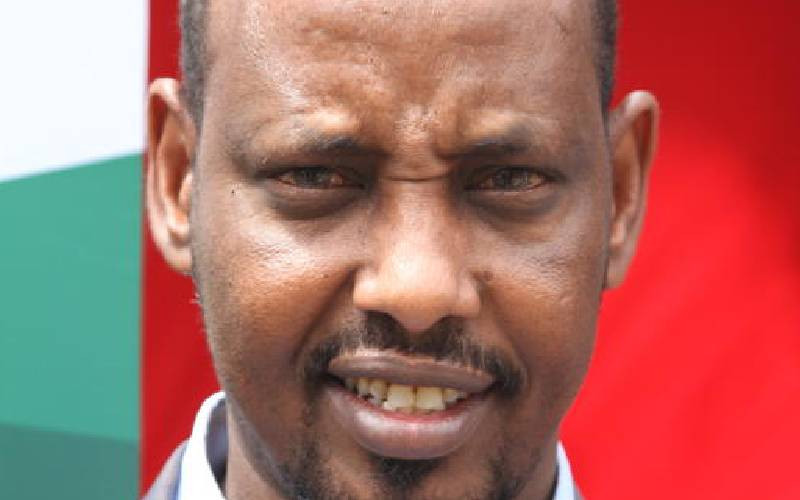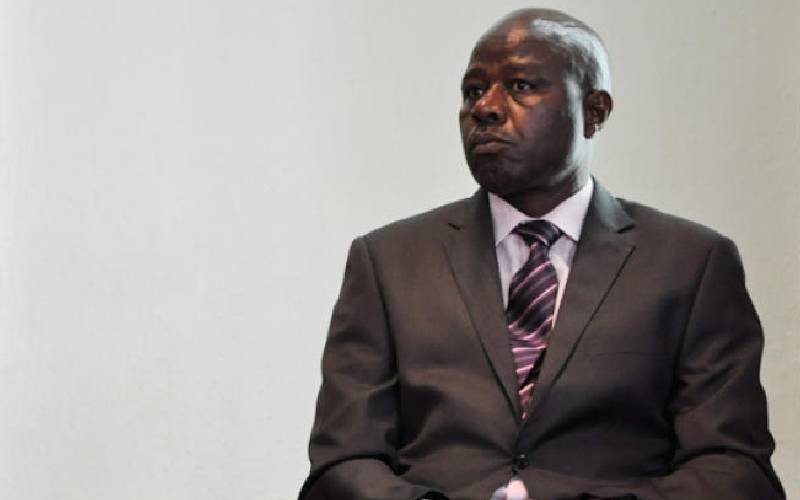
President William Ruto while putting some final touches on his government after Cabinet secretaries assumed office last week, has applied loyalty and regional balance as a key yardstick.
Wednesday, November 2, 2022, he nominated Principal Secretaries and sent the names to the National Assembly for approval.
Ruto increased the number of State departments to 49 and appointed 51 Principal Secretaries with two going to the Office of the Deputy President, a departure from the Uhuru Kenyatta administration that had 42 PSs.
Among the 51 nominees are former legislators, as well as Kenya Kwanza loyalists and some PSs who served in the Jubilee government, are making a comeback.
The President has retained five Uhuru PSs - Belio Kipsang has returned to the Ministry of Education as PS for Basic Education, Harry Kimutai has remained in the Livestock and Development docket, Charles Hinga has also been retained as Urban and Development PS, Dr Chris Kiptoo has been moved from Environment and Forestry docket to National Treasury while Julius Korir will be in Cabinet Affairs docket.
Peter Tum has made a comeback as nominee for Medical Services. Among the politicians nominated as PS include former Laikipia West MP Patrick Mariru (State Department for Defence) and former Langata MP Nixon Korir (Lands and Physical Planning).
Others are Phillip Kello Harsama (Crop Development), a member of Ruto's United Democratic Alliance who unsuccessfully vied for Marsabit governorship. Harsama also served as Director General of Agriculture Fisheries and Food Authority.
Beatrice Inyangala (Higher Education and Research), was former Senator Cleophas Malala's running mate in the Kakamega governor's race. Other notable nominations include lawyer Korir Sing'oei (Foreign Affairs), political analyst Edward Kisiangani (ICT) and former Nairobi Deputy Governor Jonathan Mueke (Sports) and former IEBC Director of ICT James Muhati.

Shadrack Mwadime, who was Administrative Secretary at Ruto's former office, has been appointed PS at the State Department for Shipping and Maritime Affairs, John Tanui the Konza Technopolis Development Authority (KoTDA) Chief Executive Officer (ICT and Digital Economy).
Ruto has plucked some executives from government agencies and parastatals, drawing expertise from the National Treasury, ICT Authority, Nakuru and West Pokot counties as well as National Irrigation Board and the private sector.
While Ruto has rewarded his loyalists, he has ignored nearly all politicians who had applied and were shortlisted save for the two.
Gender balance
With only a dozen women nominated in a list of 51, the President is five women short of meeting the gender ratio.
The nominations are already facing questions of regional balance as leaders from regions such as North Eastern cry out for lack of people from their region.
More than half of the nominees comes from political bases and communities of President Ruto and his deputy Rigathi Gachagua.
Members of Ruto's UDA party from Wajir North and Tarbaj complained that they had been left out.
"We were not part of this government from the beginning. Parliamentary committees, cabinet secretary appointments and the principal secretary nominations that were just released. It is like we are not considered in UDA yet we toiled to ensure our president won the election," said Wajir North MP Ibrahim Saney.

Hussein Abdi Barre said they had rallied voters in the county to vote for Ruto against an Azimio la Umoja wave based on the promise of inclusion.
Narok Senator Ledama Ole Kina said the nominations do not meet regional balance and are dominated by Ruto and Rigathi's communities.
"We told you the (Kenya Kwanza) government will be a (a two community) affair, not a Kenyan affair, not -Mama Mboga- "bottom up"," Ole Kina said.
Former Isiolo Woman MP Rehema Jaldesa who had interviewed for the positions, was shortlisted but missed out, counted the nomination of Mohamed Liban and Kello Harsama as a win for Isiolo and Marsabit Counties.
"It's goes without saying that this is the first time that these marginalised counties have been considered for these positions," she said.
Kakamega Senator Boni Khalwale and Kimilili MP Didimus Barasa, like Jaldesa, were happy that members of their community had been nominated.
"The president continues to mould his government and we're grateful as a region/community for the recognition of our professionals," said Dr Khalwale.
Dr Inyangala, Prof Kisiang'ani, Susan Mang'eni (MSMEs Development) and Muhati are from Western Kenya.

Others nominated include Teresia Mbaika Malokwe (Devolution), Esther Ngero (Performance and Delivery Management), Aurelia Rono (Parliamentary Affairs), Raymond Omollo (Interior and National Administration), Caroline Nyawira Murage (Correctional Services), Amb Julius Bitok (Citizen Services), Roseline Njogu (Diaspora Affairs), Amos Gathecha (Public Service), Veronica Mueni Nduva (Gender and Affirmative Action), Joseph Mungai Mbugua (Roads), Mohamed Dhagar (Transport), Joel Arumonyang (Public Works), Dr Joseph Mburu (Health Standards and Professional Management), Esther Thaara Muhoria - (TVET), Alfred K'Ombundo (Trade), Abubakar Hassan (Investment Promotion), Juma Mukhwana (Industry), Patrick Kiburi Kilemi (Cooperatives), Ismail Madey (Youth Affairs), Festus Ngeno (Environment), Ephantus Kimotho (Forestry).
The nominees also include John Ololtuaa (Tourism), Sylvia Naseya Muhoro (Wildlife), Ummy Mohammed Bashir (Culture and Heritage), Dr. Paul Ronoh (Water and Sanitation), Gitonga Mugambi (Irrigation), Alex Wachira (Energy), Mohamed Liban (Petroleum), Geoffrey Kaituko (Labour and Skills Development), Joseph Mugosi Mutavi - (Social Protection and Senior Citizen Affairs), Abdi Dubart (East African Community Development), Idris Dogota - (The ASALs and Regional Development), Elijah Mwangi (Mining), Betsy Muthoni Njagi (Blue Economy and Fisheries) and Shadrack Mwadime (Shipping and Maritime Affairs).
 The Standard Group Plc is a multi-media organization with investments in media platforms spanning newspaper print
operations, television, radio broadcasting, digital and online services. The Standard Group is recognized as a
leading multi-media house in Kenya with a key influence in matters of national and international interest.
The Standard Group Plc is a multi-media organization with investments in media platforms spanning newspaper print
operations, television, radio broadcasting, digital and online services. The Standard Group is recognized as a
leading multi-media house in Kenya with a key influence in matters of national and international interest.

